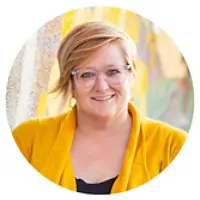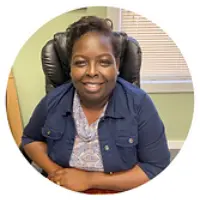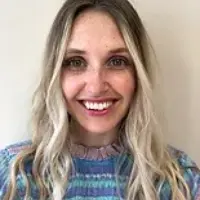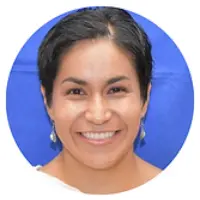About Children & Families First
Located in Seaford, Delaware is the Children and Families First Seaford House. This is an organization that provides a number of services to children, adults, and their families, and they tackle issues ranging from complex behavioral health services to substance abuse struggles.
They rely on the latest evidence based approaches but also provide comprehensive counseling support to help you and your family work through issues that are negatively impacting your life.
There is state and federal funding that can help cover the cost of care here. Some of their services are also available for free or at a reduced cost. Get in touch with the intake team to learn more about financing options.
Counseling at Seaford House
The Seaford House specializes in providing a safe place where you, a loved one, or your family can work through issues with the support of a licensed and experienced counselor. Drug addiction counselors are available to provide intervention and support services, and they can also refer you to other organizations if you need more robust support.
Wrap Around Care
Along with counseling, you’ll be supported through life skills development, peer to peer connections, advocacy, and other support services that will help you focus on recovery goals so that you can lead a fuller life.
They work with individuals from all backgrounds and all stages of recovery, including those who have recently relapsed and individuals who’ve endured trauma that has contributed to their addiction struggles. They also offer specialized care for children navigating the foster care system or who are otherwise involved with the Department of Services for Children, Youth, and Families.
Latest Reviews
Rehab Score
Accepted Insurance
Other Forms of Payment
Private insurance refers to any kind of healthcare coverage that isn't from the state or federal government. This includes individual and family plans offered by an employer or purchased from the Insurance Marketplace. Every plan will have different requirements and out of pocket costs so be sure to get the full details before you start treatment.
Medicare is a federal program that provides health insurance for those 65 and older. It also serves people under 65 with chronic and disabling health challenges. To use Medicare for addiction treatment you need to find a program that accepts Medicare and is in network with your plan. Out of pocket costs and preauthorization requirements vary, so always check with your provider.
Medicaid is a state based program that helps lower-income individuals and families pay for healthcare. Medicaid covers addiction treatment so those enrolled can use their coverage to pay for rehab. When a program accepts Medicaid the client often pays very little or nothing out of their own pocket.
Addiction Treatments
Levels of Care
Clients in outpatient rehab have often completed inpatient treatment and are stable and progressing in their recovery journey. Others may have elected to move straight from detox into outpatient care to minimize disruptions to their work or family life. Because outpatient clients' needs may vary widely, treatment programs and levels of care are also often diverse. Clients requiring more frequent and substantive psychotherapy and recovery support may enroll in intensive outpatient (IOP) or partial hospitalization (PHP) programs.
Residential treatment programs are those that offer housing and meals in addition to substance abuse treatment. Rehab facilities that offer residential treatment allow patients to focus solely on recovery, in an environment totally separate from their lives. Some rehab centers specialize in short-term residential treatment (a few days to a week or two), while others solely provide treatment on a long-term basis (several weeks to months). Some offer both, and tailor treatment to the patient's individual requirements.
Offering an intensive form of rehab tailored to those who don't need 24-hour care, a partial hospitalization program (PHP) is ideal for serious addiction disorders that may not fully respond to regular outpatient therapy. PHP can serve as an alternative to inpatient hospitalization or as a step-down option and is often fully covered by insurance. With daily sessions lasting six to eight hours, up to five days a week, PHP treatment can provide medication management, relapse prevention strategies, and behavioral therapy interventions.
Treatments
Mental health rehabs focus on helping individuals recover from mental illnesses like bipolar disorder, clinical depression, anxiety disorders, schizophrenia, and more. Mental health professionals at these facilities are trained to understand and treat mental health issues, both in individual and group settings.
Programs
Adult rehab programs include therapies tailored to each client's specific needs, goals, and recovery progress. They are tailored to the specific challenges adult clients may face, including family and work pressures and commitments. From inpatient and residential treatment to various levels of outpatient services, there are many options available. Some facilities also help adults work through co-occurring conditions, like anxiety, that can accompany addiction.
Young adulthood can be an exciting, yet difficult, time of transition. Individuals in their late teens to mid-20s face unique stressors related to school, jobs, families, and social circles, which can lead to a rise in substance use. Rehab centers with dedicated young adult programs will include activities and amenities that cater to this age group, with an emphasis on specialized counseling, peer socialization, and ongoing aftercare.
Clinical Services
Cognitive Behavioral Therapy (CBT) is a therapy modality that focuses on the relationship between one's thoughts, feelings, and behaviors. It is used to establish and allow for healthy responses to thoughts and feelings (instead of unhealthy responses, like using drugs or alcohol). CBT has been proven effective for recovering addicts of all kinds, and is used to strengthen a patient's own self-awareness and ability to self-regulate. CBT allows individuals to monitor their own emotional state, become more adept at communicating with others, and manage stress without needing to engage in substance abuse.
Group therapy is any therapeutic work that happens in a group (not one-on-one). There are a number of different group therapy modalities, including support groups, experiential therapy, psycho-education, and more. Group therapy involves treatment as well as processing interaction between group members.
In individual therapy, a patient meets one-on-one with a trained psychologist or counselor. Therapy is a pivotal part of effective substance abuse treatment, as it often covers root causes of addiction, including challenges faced by the patient in their social, family, and work/school life.
Trauma therapy addresses traumatic incidents from a client's past that are likely affecting their present-day experience. Trauma is often one of the primary triggers and potential causes of addiction, and can stem from child sexual abuse, domestic violence, having a parent with a mental illness, losing one or both parents at a young age, teenage or adult sexual assault, or any number of other factors. The purpose of trauma therapy is to allow a patient to process trauma and move through and past it, with the help of trained and compassionate mental health professionals.
Whether a marriage or other committed relationship, an intimate partnership is one of the most important aspects of a person's life. Drug and alcohol addiction affects both members of a couple in deep and meaningful ways, as does rehab and recovery. Couples therapy and other couples-focused treatment programs are significant parts of exploring triggers of addiction, as well as learning how to build healthy patterns to support ongoing sobriety.
Research clearly demonstrates that recovery is far more successful and sustainable when loved ones like family members participate in rehab and substance abuse treatment. Genetic factors may be at play when it comes to drug and alcohol addiction, as well as mental health issues. Family dynamics often play a critical role in addiction triggers, and if properly educated, family members can be a strong source of support when it comes to rehabilitation.
Engaging in recreational therapy within an addiction treatment program helps you find joy and purpose in everyday activities. Recreational therapy may include art projects, fitness programs, or outdoor excursions where the activities promote well being, reduce stress, and create a sense of community. Each of these activities is crucial to long term sobriety.
Staff

Kirsten Olson
Chief Executive Officer

Brian Maxwell
Chief Financial Officer

Dr. Julius Mullen
Chief Equity, Diversity & Inclusion Officer

Tamara DeFer
Chief Leadership & Engagement Officer

Zakiya Bakari-Griffin
Chief Program Officer Prevention

Brenda Smith
Chief Program Officer Intervention

Kiera McGillivray
Chief Program Officer School-Based Initiatives

Clara Martinez
Chief Program Officer Head Start
Contact Information
400 North Market Street
Extension
Seaford, DE 19973




